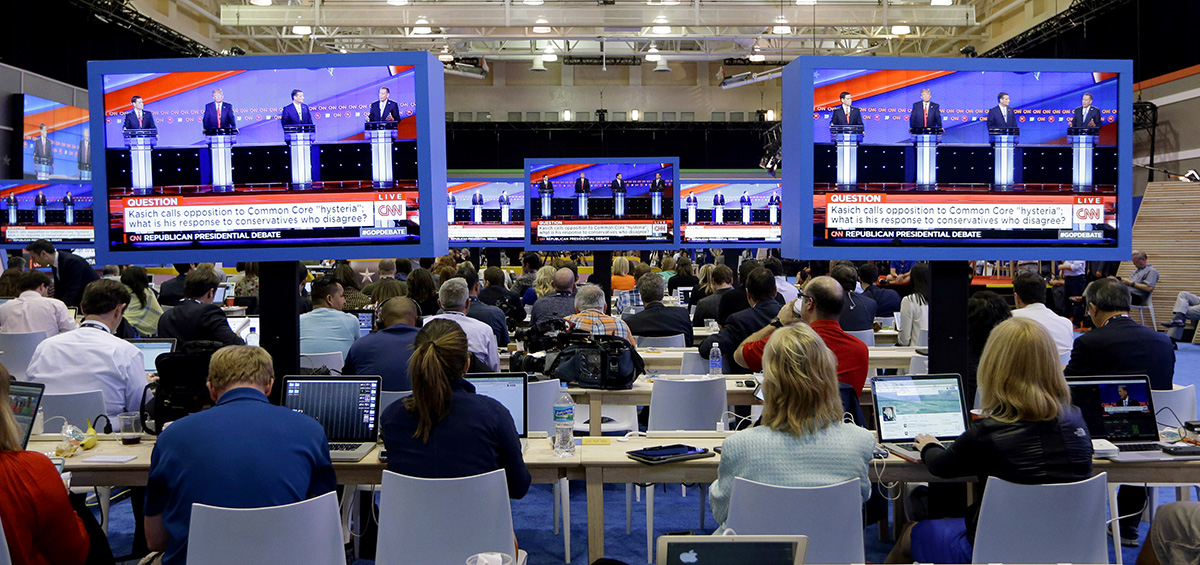
Editor’s note: There are a lot of great stories to read in the newest issue of our sister publication Nieman Reports. In this piece, Tatiana Walk-Morris writes about how fact-checking is going real-time.
In awarding its Lie of the Year title to Donald Trump last December, the staff at PolitiFact had a lot of material from which to choose.
During the first GOP debate on August 6 in Cleveland, Ohio, the front-runner for the Republican presidential nomination said the government of Mexico sends “the bad ones over,” referring to the undocumented immigrants entering the U.S. from that country. There is nothing to suggest the Mexican government encourages criminals to enter the U.S.
On November 21 in Birmingham, Alabama, Trump claimed “thousands of people were cheering” in Jersey City, New Jersey as the World Trade Center towers collapsed on September 11, 2001. There is no evidence for this claim, and Trump has not put forth any to support it.
On November 22, Trump retweeted an image that contained the following statistics: “Whites killed by whites—16%. Whites killed by blacks—81%.” FBI statistics show that in 2014, 82 percent of white murder victims were killed by whites, and the number of whites killed by blacks was approximately 15 percent.
“We did have a long discussion about if there was one [lie] that was more significant than the other, but at the end of the discussion it just seemed like it was a tough call,” says Angie Drobnic Holan, editor of PolitiFact, the 2009 Pulitzer Prize-winning fact-checking wing of The Tampa Bay Times. “They were all pretty inaccurate and inflammatory.” So PolitiFact ended up designating Trump’s collective falsehoods as Lie of the Year rather than singling out one as especially egregious.
Campaign seasons are always busy times for fact-checkers, but this presidential campaign has been particularly intense. According to the Reporters’ Lab at Duke University, there are 96 active fact-checking projects in the U.S. and abroad, up by 50 percent since last year. And many are using advanced technologies to automate and accelerate the process. “The key to the future of fact-checking is getting the fact-checks virtually instant and making it so the fact-check is presented on the medium that the claim is made on,” says Bill Adair, director of the Reporters’ Lab and founder of PolitiFact.
Research suggests that people do care about the facts — sort of. An American Press Institute (API) study, which measured public views on fact-checking during the 2014 campaign season, found that nearly half of those surveyed were somewhat or very unfamiliar with the practice. Those who were more familiar with fact-checking had more favorable attitudes toward it, as did individuals well informed about politics more generally, especially Democrats. The API study, released last spring, found that 59 percent of politically well-informed Democrats had very favorable views of fact-checkers, versus 34 percent of well-informed Republicans. For less politically well-informed Democrats, 36 percent considered fact-checkers favorably, compared to 29 percent of less well-informed Republicans.